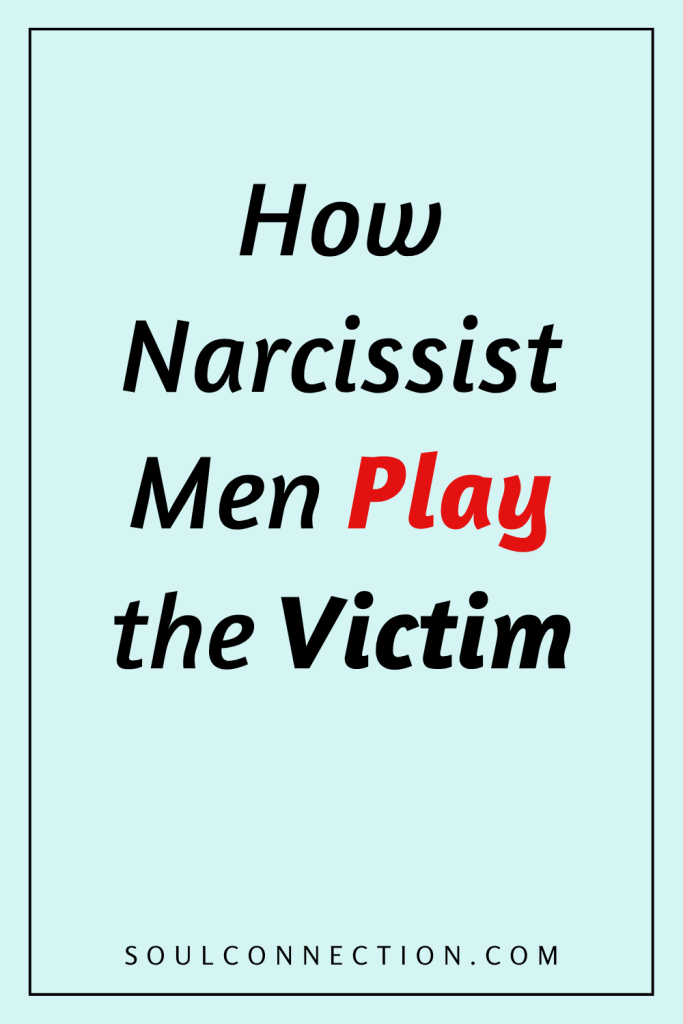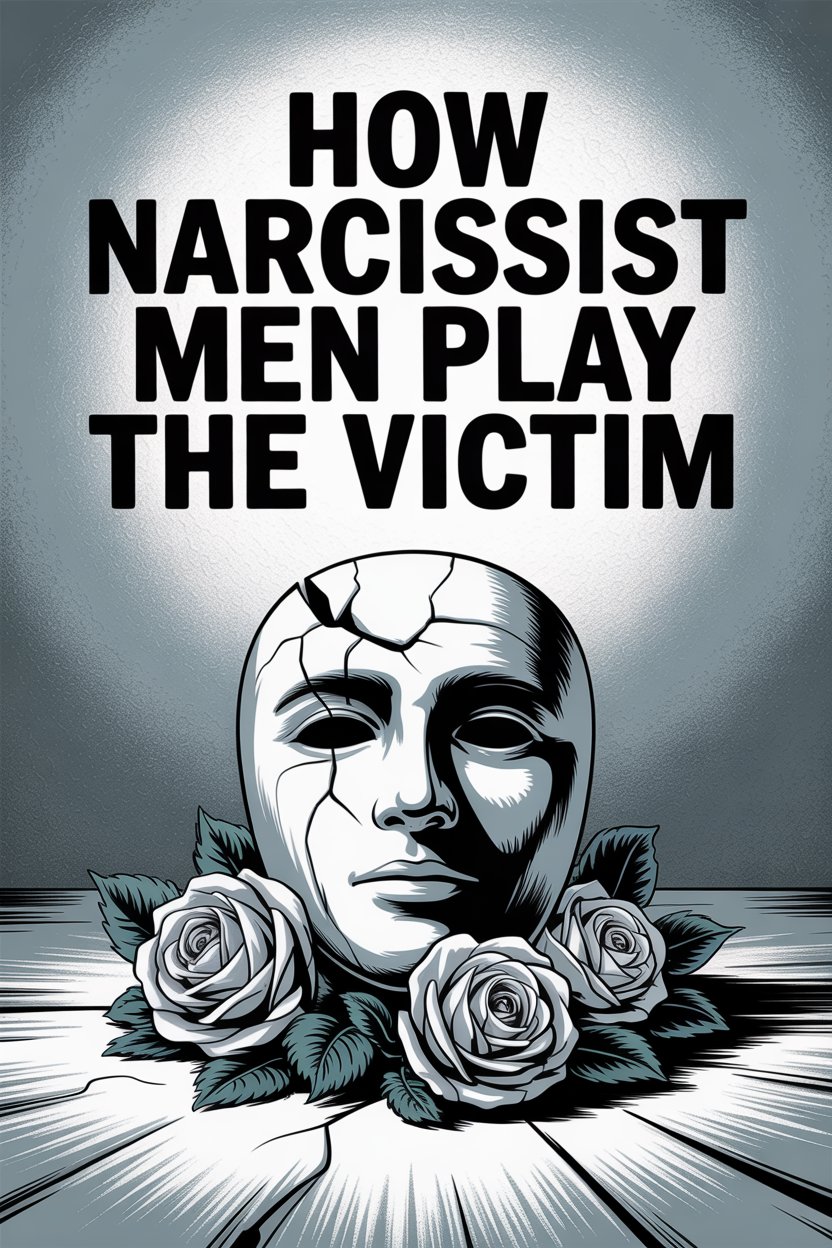There’s something about a narcissist’s ability to spin a story that could make even your granny’s years-long feud with the neighbours look like a friendly misunderstanding.
When the narcissistic man dons his ‘woe is me’ cloak, things in the relationship can get downright dizzying.
Welcome to the drama, starring him, with a supporting cast of one: you.
Mastering the Misery Olympics
When things go pear-shaped, a narcissist doesn’t fess up or try to fix their mistakes. Instead, they leap for gold in the Misery Olympics, where every slightly raised eyebrow or missed text is declared a personal injustice.
It’s not his temper that ruined date night—it’s your “constant nagging.” It’s not his sarcasm that made your friend squirm—it’s your “overly sensitive” social circle.
He’s not storming out of the room because he’s upset; he’s “hurt” that you’d dare question him.
Shifting blame like this isn’t just a preference—it’s practically a sport.
Emotional Judo: Flipping the Script
Ever felt like you’re having one conversation, and suddenly you’re defending things you didn’t even realize you did? That’s emotional judo, narcissist style.
He brings up something hurtful he said, and before you know it, he’s listing all the ways you’ve let him down.
That time you forgot to set his alarm? Ancient history, but suddenly Exhibit A in the trial of the century.
Arguments morph into marathons, with him spinning tales about his suffering while you try to remember what you were even mad about.
Crocodile Tears with a Side of Guilt
Tears can be real, but with a narcissist, they’re sometimes just part of the performance. Cue the dramatic sighs, hand-to-forehead gestures, and tales of heartbreak that would make Shakespeare say, “Steady on, mate.”
He might claim no one understands him, that everyone always leaves him, that you’re “just like the rest.”
The tears aren’t about growth or reconciliation—they’re invitations for you to drop your boundaries and rush in comforting, apologizing, self-blaming. It’s a guilt trip with no return ticket.
The Art of Selective Amnesia
Memory is a funny thing for the narcissistic victim.
Last week’s promise to work on his anger? Sorry, never happened. The time he embarrassed you at your sister’s birthday? Selective amnesia strikes again.
But let you forget his favorite snack, and suddenly you’re painted as the world’s least thoughtful partner—a recurring role you never auditioned for.
It’s not forgetfulness. It’s strategy. The facts that help his case are polished and displayed; the rest are lost forever, like your patience.
Recruiting the Sympathy Squad
Why limit the drama to two? The narcissist loves an audience. Friends, family, your mutual barista—all potential recruits for his sympathy parade.
He’ll twist stories, emphasizing his suffering, conveniently leaving out his role in any trouble. “She just doesn’t appreciate me,” he might confide, eyes cast down, waiting for the inevitable, “Oh, you poor thing.”
Suddenly, you’re not only dealing with his accusations but also fielding awkward glances from people who can’t understand why you’d be so ‘mean.’ Some days it feels like the whole world’s been handed a script you never saw.
Projecting Their Way to Innocence
Projection isn’t just for movie night. When a narcissist feels a twinge of guilt, it’s easier to point fingers than look in the mirror.
He accuses you of lying—after he’s been caught red-handed. He suspects you’re hiding things—projecting his own secretive behaviour. He insists you’re manipulative—while expertly tugging your emotional strings.
It’s a hall of mirrors. Every accusation is a confession in disguise.
Weaponizing Vulnerability
Real vulnerability builds connection. The narcissist’s version? More like a Trojan horse.
He might reveal a sad childhood story or share a personal struggle, but only when things aren’t going his way. It’s not about intimacy—it’s a get-out-of-jail-free card for bad behaviour.
You feel compelled to go easy on him, lower your standards, excuse his actions. Before you know it, your empathy is working against you, and he’s back to being the misunderstood hero.
Flipping Out When Called Out
Confronting him about his actions rarely goes well. Mention his pattern of playing the victim, and you can practically set your watch by the meltdown.
He accuses you of being cruel, insensitive, or “obsessed with finding fault.” Maybe he storms off, maybe he sulks for days, but the message is clear: challenge me, and I’ll suffer—loudly.
Suddenly, your need for accountability is painted as heartless bullying. The tables have not so much turned as they’ve been heaved across the room.
The Never-Ending Plot Twist
A narcissist never runs out of reasons to be the aggrieved party. Today, it’s your ‘tone’ on the phone. Tomorrow, your failure to read his mind. The plot twists are endless.
Each fresh grievance keeps you on the back foot, too busy playing emotional whack-a-mole to see the bigger picture. It’s exhausting, and that’s the point.
If you’re always trying to fix things, you’ll never have time to question the script.
How to Stop Being Cast as the Villain
Spotting the pattern is half the battle. The next step? Exit the stage—at least in the role he’s assigned you.
- Keep a journal. Fact-checking the ever-changing narratives can help you spot cycles and resist gaslighting.
- Hold your ground. Boundaries aren’t mean; they’re survival tools. Stick to them, even when he insists you’re being unreasonable.
- Limit the audience. Oversharing, especially with mutual acquaintances, gives him more material. Rope in trusted friends instead.
- Refuse the guilt trip. Feeling bad is his currency. When you catch the manipulation, try not to buy in.
- Seek support. Therapy, support groups, or even online forums can be sanity-savers. It’s not you, it’s the script.
Walking away from the performance (or at least muting the volume) is easier said than done, but it’s possible. The less you engage in the narrative, the less power it has over you.
Reclaiming Your Role
Living with a narcissist who plays the victim can make you question yourself, your reality, and even your worth. But here’s the twist: you have the right to write your own story.
Set boundaries. Say “no” without providing a PowerPoint presentation of reasons. Take up space, even if he sulks. Trust your version of events.
And when the curtain falls on his latest act, remember—you’re not the villain.
Sometimes, the bravest thing you can do is step out of the drama and get back to living your own life, plot twists and all.


